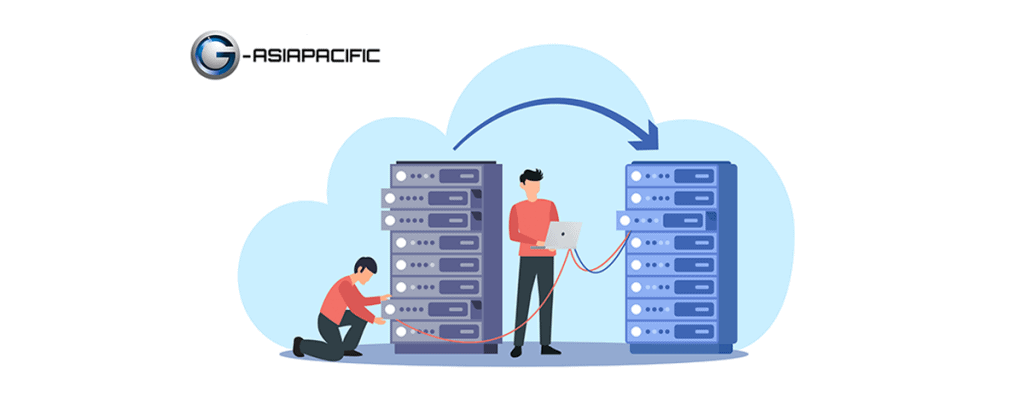The growth in cloud adoption increases more so than ever each year. Cloud technology has established dominance in most businesses. A recent survey in Malaysia Cloud & Datacenter Convention indicates that its respondents are intending to undertake the following changes in their IT infrastructure: Cybersecurity Implementation (27%), Data Center Migration and Expansion (25%), Private Cloud Deployment (25%), and Migration to Public or Hybrid Cloud (25%) for the next 12 months, with most of them indicating to commence multiple projects at the same time.
The majority of the respondents were from the Financial Services industry (19.1%). Other industries include Telecommunications (17.6%), Cloud Service Providers (14.1%), and Government Agencies (10.2%). It comes as no surprise that the shift to Cloud is continuously accelerating in enterprises. Although resulting adaptation may complicate infrastructure management, they aren’t enough to attract most companies back to on-premise systems.
SMBs may not be as driven to make these changes to their IT environment compared to large enterprises. It’s no secret that cloud adoption ripples big changes for small businesses. However, that does not mean SMBs are not suitable candidates for cloud solutions. With the ongoing pandemic, having strong cloud-based initiatives and operations in place will allow SMBs to mitigate disruptions in their business operations.
Now let’s look at some of the key benefits for SMBs to migrate to the cloud:
1) Faster adoption to market.

The use of cloud technologies enables businesses to create a platform that encourages growth and scalability. The most prominent aspect being SMBs can accelerate their digital transformation better than enterprises. SMBs are able to take advantage of cloud technologies to help them overcome typical business challenges such as productivity and skillset. Having a smaller workforce means it will be easier to maintain communication and collaboration which will result in faster deployment and change management. Large enterprises will face the challenge of tailoring their workflows and practices to accommodate new cloud- based services.
Cloud technology provides easy access to services that can enhance growth and promote innovation in a company. In addition to that, the deployment of services such as AI and ML has been simplified to provide a smaller learning curve to enable leaders to focus on developing and driving business strategies forward more confidently. The enablement of quicker development and testing of ideas also help to bring forward and highlight important decisions early on. This allows companies to experiment with the right blend of technology to promote the outcomes they want in the market and at the same time keep in trend with the culture.
2) You only pay for what you use.

There is never a moment in time when the cost is not an issue. Cloud-based infrastructure enables financial models to be predictable. Cloud technology reduces the need for upfront costs and is billed by monthly rates through a pay per use model with additional discount components. You can further optimize the costs by defining internal policies to manually or automatically manage the resources such as shutting down workloads after hours, rightsizing servers, eliminating unused storages, etc.
The switch from having legacy servers to cloud servers eliminates the need for continual environment refreshes or updates and reduces demand for IT support staff. This is because cloud service providers manage the underlying hardware and resources so you can focus on what matters most, your applications. SMBs do not have to be burdened by the idea of purchasing hardwares and refreshing every few years as cloud technology ensures your environment scales as required on demand.
3) Remote working is the new trend.
![]()
Many business operations have been disrupted by the pandemic’s lockdown measures, and employers are scrambling around trying to find new ways to support remote working. Cloud technology encourages businesses to work remotely. Information becomes conveniently accessible and at the same time ensuring strict control on who gets to access what services. You can easily set up the necessary infrastructure and deploy within a day. End-users also get the benefit of using the services with minimal effort required. This enables remote employees to strive for a better work-life balance and improves productivity.

The adoption of cloud endorses internal processes to be optimized by having better organization, faster decision making, and accelerating communication between staff members. Businesses are able to use tools that can help centralize information, provide real time updates, and streamline workloads. Introducing all these changes drive SMBs to be more flexible and successful in growing their businesses.
Nowadays, SMBs are definitely starting to integrate more cloud solutions into their businesses and this transformation will ensure they have a chance to stay ahead of the competition.
Contact us now to get a free assessment to help kickstart your business migration journey to the cloud.
#gasiapac #benefitsofmigration







